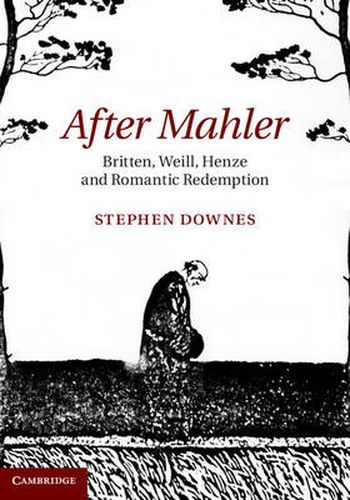Readings Newsletter
Become a Readings Member to make your shopping experience even easier.
Sign in or sign up for free!
You’re not far away from qualifying for FREE standard shipping within Australia
You’ve qualified for FREE standard shipping within Australia
The cart is loading…






The music of Gustav Mahler repeatedly engages with Romantic notions of redemption. This is expressed in a range of gestures and procedures, shifting between affirmative fulfilment and pessimistic negation. In this groundbreaking study, Stephen Downes explores the relationship of this aspect of Mahler’s music to the output of Benjamin Britten, Kurt Weill and Hans Werner Henze. Their initial admiration was notably dissonant with the prevailing Zeitgeist - Britten in 1930s England, Weill in 1920s Germany and Henze in 1950s Germany and Italy. Downes argues that Mahler’s music struck a profound chord with them because of the powerful manner in which it raises and intensifies dystopian and utopian complexes and probes the question of fulfilment or redemption, an ambition manifest in ambiguous tonal, temporal and formal processes. Comparisons of the ways in which this topic is evoked facilitate new interpretative insights into the music of these four major composers.
$9.00 standard shipping within Australia
FREE standard shipping within Australia for orders over $100.00
Express & International shipping calculated at checkout
The music of Gustav Mahler repeatedly engages with Romantic notions of redemption. This is expressed in a range of gestures and procedures, shifting between affirmative fulfilment and pessimistic negation. In this groundbreaking study, Stephen Downes explores the relationship of this aspect of Mahler’s music to the output of Benjamin Britten, Kurt Weill and Hans Werner Henze. Their initial admiration was notably dissonant with the prevailing Zeitgeist - Britten in 1930s England, Weill in 1920s Germany and Henze in 1950s Germany and Italy. Downes argues that Mahler’s music struck a profound chord with them because of the powerful manner in which it raises and intensifies dystopian and utopian complexes and probes the question of fulfilment or redemption, an ambition manifest in ambiguous tonal, temporal and formal processes. Comparisons of the ways in which this topic is evoked facilitate new interpretative insights into the music of these four major composers.